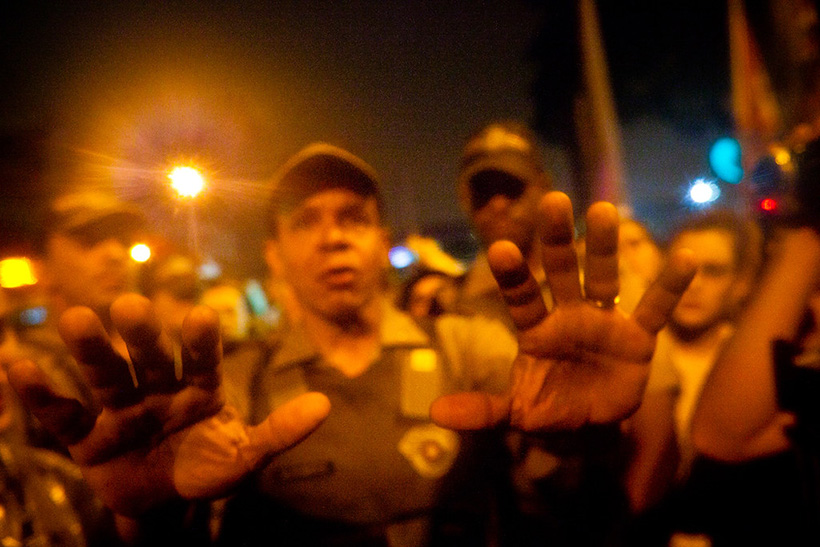As I write this text, my heart trembles with pain, fear, and a sense of impotence… Under the justification of “establishing a minimum standard of conduct for citizens during a police approach”, federal deputy Bibo Nunes (PL-RS) presented bill 5610/2019, which the Public Security Committee of the Chamber of Deputies approved on Tuesday 14 June. The bill provides for imprisonment for anyone who, during a police boarding, touches a security officer.
According to the author of the bill, “the limitation of bilateral behaviour during police actions is essential to protect the public security officer”. In other words: “it becomes the duty of the citizen to comply with the police officer’s orders, to keep his hands free and visible, not to make sudden movements, not to touch the police officer and to keep a minimum distance of one metre”. In the light of all this, some questions remain: a) who protects the citizen from the police action; b) what are the limits of the police; c) the police can push (as they usually do), kick, hit in the face… and the violated person has to endure all this motionless?
Unfortunately, truculent actions by police forces in Brazil are not uncommon. The recent murder of Genivaldo de Jesus Santos – a black man suffering from schizophrenia – in the state of Sergipe, involving federal traffic police, is just one example. Let’s say, by the way, that it revolts us, causes us indignation and shows us how vulnerable we are (especially those of us who are racialised/racialised) to the actions of the “security” forces in this country. To date, the officers involved have not been arrested, despite all the evidence that there was an action that led to Genivaldo’s death.
Legal cover for violence
As if this story worthy of anti-democratic states that do not respect human rights were not enough, the Brazilian Parliament decided to further extend the powers of the police forces to oppress, humiliate (and even murder), with this initiative of the deputy of Rio Grande do Sul, which provides for three months to one year in prison and a fine in case of non-compliance.
When I lived in Feira de Santana, my hometown, and also in Salvador, the capital of Bahia, I unfortunately experienced the horror of seeing military police mistreating people for no reason at all. Simply gruesome behaviour, real demonstrations of abuse of authority.
On one of these occasions, in Feira, I almost got arrested because I interfered with police officers beating a minor who had allegedly stolen a passer-by’s handbag. I will never forget that day! I almost didn’t get thrown into a police truck. And talking to a policeman friend about what happened, he simply “advised” me not to repeat that behaviour. I don’t remember exactly when this happened, but I know that I was under 24 years old, as I was still studying to graduate (I graduated at 24).
Instead of giving more coercive mechanisms to the security forces, the best solution for Brazil, according to many experts, would be to demilitarise the police. But, until that happens, what the national legislature should do is, at the very least, create more effective instruments of condemnation for cases of abuse, which, unfortunately, are routine in our country (I never tire of repeating it!). It is not possible that every day the police kill, beat, mistreat, and we leave it at that!
International human rights organisations often criticise and denounce governments such as Venezuela and Cuba, among others, as “human rights violators”. However, I do not see them doing the same in relation to Brazil, a country that in 2020, for example, registered 17.6 deaths per day as a result of police actions, according to the Brazilian Public Security Forum. Similarly, between 2013 and 2018, there was a growth of around 190% in this regard. I wonder what weights and measures are used to classify countries as democratic or anti-democratic, violators and non-violators of human rights.
What kind of country with these numbers accepts that the Parliament passes a bill that gives even more coercive power to the security forces? What kind of state is Brazil? What kind of society can tolerate laws like the one proposed by Congressman Bibo Nunes? What kind of human beings are we becoming by tolerating the imposition of legal protection for acts of violence?
I hope that we can mobilise and put pressure on the Legislative Branch so that this truculent proposal is not approved in the Plenary.






